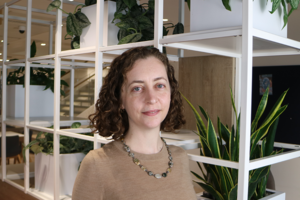CMA appoints new Senior Director of Mergers
Press release
The CMA has appointed Sorcha O’Carroll as its new Senior Director of Mergers.

Sorcha has worked as a Director of Mergers at the Competition and Markets Authority (CMA) since 2019 and replaces Joel Bamford who left in February. Her appointment follows an open recruitment process that attracted applications from a strong field of candidates.
As Senior Director of Mergers, Sorcha will be the decision-maker on complex Phase 1 merger cases, as well as overseeing the merger team’s work across both Phase 1 and 2 inquiries. Following the UK’s exit from the EU, the CMA has taken on responsibility for merger cases that were previously reserved for the European Commission, which are typically larger and more complex.
Sorcha will work alongside Colin Raftery, who is also a Senior Director in the mergers team, and report to David Stewart, Executive Director for Markets and Mergers.
David Stewart, Executive Director for Markets and Mergers at the CMA, said:
It’s a pleasure to welcome someone of Sorcha’s experience and acumen to the CMA’s senior leadership team. Everyone who works with Sorcha knows that she brings enormous strengths to our mergers work. Her analytical skill and strategic judgment will be vital in this critical role, as the CMA continues to build on its strong track record as a world-class competition authority.
On her appointment, Sorcha said:
I’m delighted to accept this role at a time when the CMA is taking on more complex merger inquiries than ever before.
Competition has an important role in delivering the best possible outcomes for people across the UK; this is especially important as the cost of living rises.
I look forward to working closely with Colin, David and the rest of the CMA’s renowned mergers team as we investigate deals to ensure that they do not undermine competition and leave people worse off.
Sorcha took up her appointment on 1 April 2022. Before joining the CMA, she worked in private practice in the UK and Canada.
- This appointment was managed by a Civil Service Commissioner to ensure a fair, merit-based, and open process, in keeping with the Civil Service Recruitment Principles.
- The role was advertised publicly with applicants being asked to submit an application form and cover letter detailing their suitability for the role, as measured against a published role profile with a set of required skills and experience.
- For media queries, please contact the press office via press@cma.gov.uk or on 020 3738 6460.